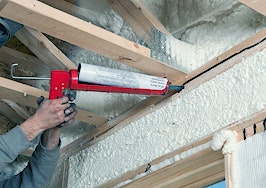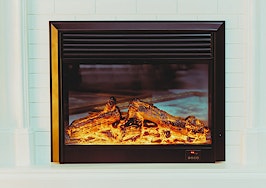All sound travels in waves, which are a series of vibrations. Soundproofing is an umbrella term that is used to include two terms. Firstly, sound blockage or stopping sound vibrations from traveling from the source to an area where it is intrusive. And secondly, sound absorption, which absorbs sound within a room so that it’s contained.
In private homes, soundproofing or blockage is most typically used in home theaters or around dishwashers and home generators. The sound waves are contained in the area where they originate and don’t travel beyond that.
Now that we’re spending a lot more time at home — and working there, too — soundproofing sounds like music, noises from video games, computers and printers are especially more important.
Ordinary home sounds from music, talking, video games, computers and printers have made soundproofing more important than ever. Taking it another level: properties that house recording studios or entertainment rooms with live music.
To achieve total soundproofing, as in a recording studio, you’ll have construct a room within a room, with a door that seals out exterior noise and keeps the sounds produced inside.
Air exchange, or a source of fresh air for such a room, is the biggest concern, as sound travels through air vents. For the purpose of this article, we’re not addressing recording studios and professional music rooms.
Many advances have been made in soundproofing, including spray foam, mass loaded soundproof panels and vinyl sound barriers, which are available in clear vinyl and can be applied to windows, allowing light to penetrate through.
Soundproof windows — double panes of glass with a barrier of air between them — prevent exterior sounds from entering a space. White noise, an artificial background noise that masks sound with a whooshing air sound does not stop or absorb sound waves.
It is wise to be aware of how to address the types of sounds your clients are attempting to contain, the size of the space and the budget they have in mind.
Hard surfaces reflect sound waves, and soft surfaces absorb sound waves, so a combination of the two will provide the best results. Several layers of drywall, with hollow airspace between, will trap sound waves and prevent their transmission. Sound absorbing materials in the hollow space between the several layers of drywall will deaden almost all sound, and prevent transmission.
Sound waves have different frequencies and when researching the type of soundproofing to use for your client’s purposes, be aware that mid and high-frequency soundwaves are typically the ones that need to be contained or blocked.
Low-frequency soundwaves can have a detrimental effect on human stress levels, and ultimately, health. Due to the long wavelength of low-frequency soundwaves, they are more challenging to block. Bass traps, comprised of acoustic foam, will trap and absorb low-frequency sound waves.
What’s more, eggcrate and wedge ridge foam panels, when installed correctly and in sufficient quantities, will contain sound, preventing the vibrations from traveling. Recycled cotton fiber is also used for its sound-attenuating properties.
I’d be remiss not to point out, once again, that blocking sound involves targeting the vibrations that become sound waves. Adding mass to a wall will stop the vibrations and prevent sound waves from traveling.
Vinyl sound barriers, known as mass-loaded vinyl, or MLV, can be glued to wall surfaces without taking up space. Acoustic foam panels have small holes to trap sound waves and are covered with a fabric material, all of which absorb sound. The heavier and denser the foam and the fabric covering, the more sound absorbing capacity available.
Noise is undesirable sound, whether music, street noises, or mechanical sounds that are a part of modern life. The understanding of how to contain noise and prevent its transmission is beneficial in real estate sales.
Every structure can benefit from soundproofing to some degree, particularly when it comes to multifamily dwellings. Your ability to discuss soundproofing options with your client will be helpful in any number of circumstances.
Gerard Splendore is a licensed associate real estate broker with Warburg Realty in New York. Connect with him on LinkedIn.













